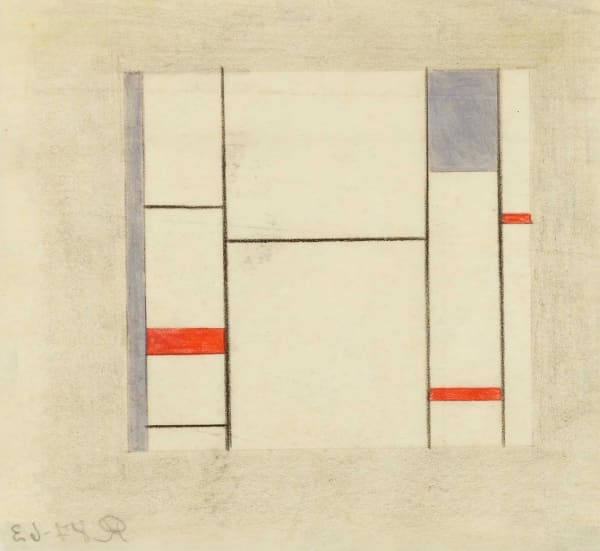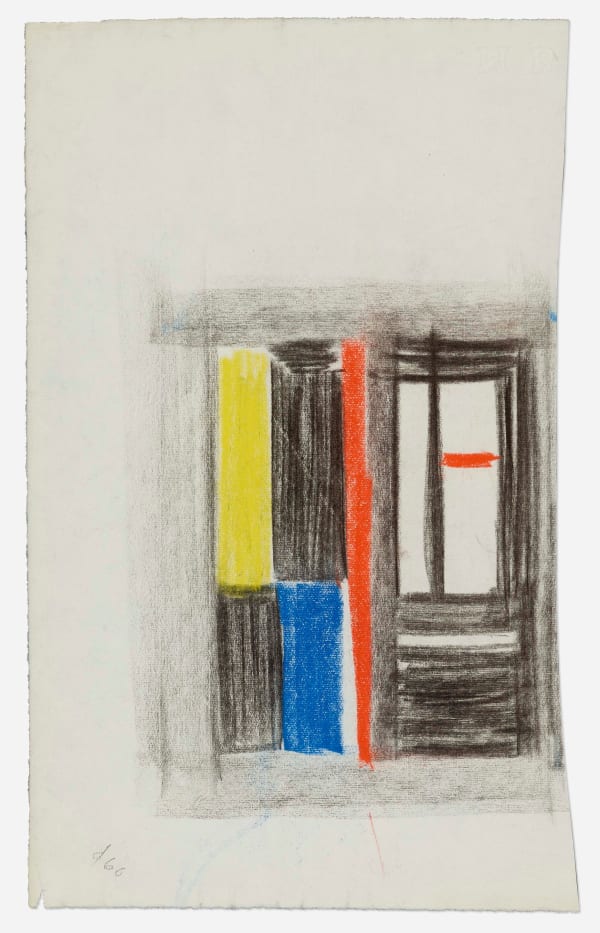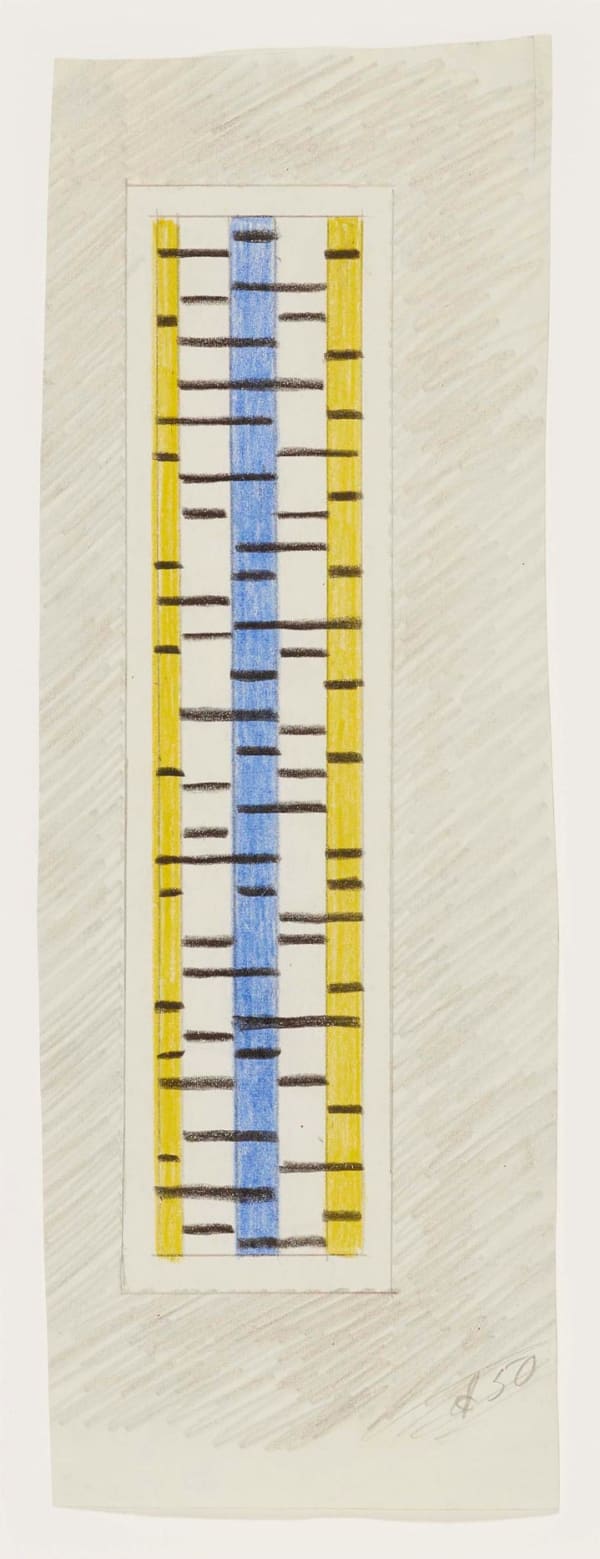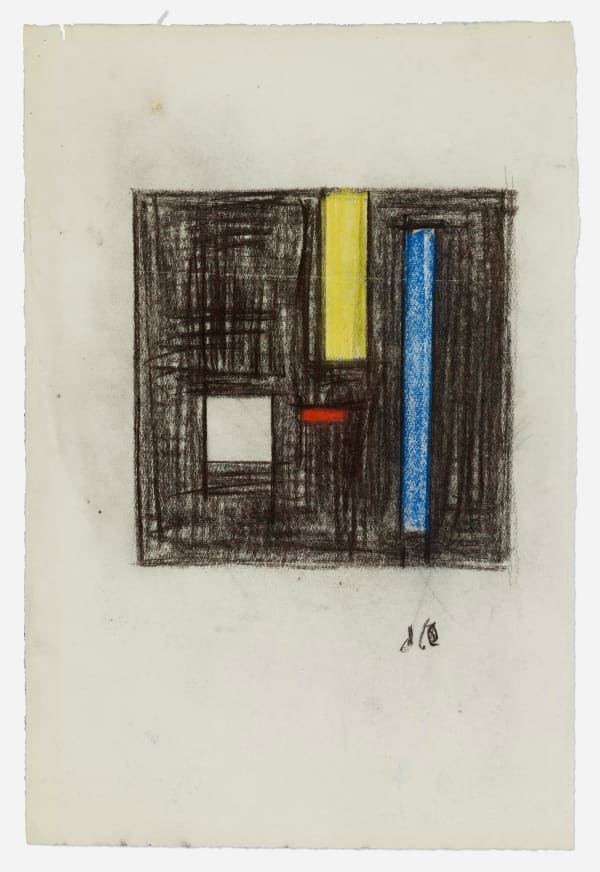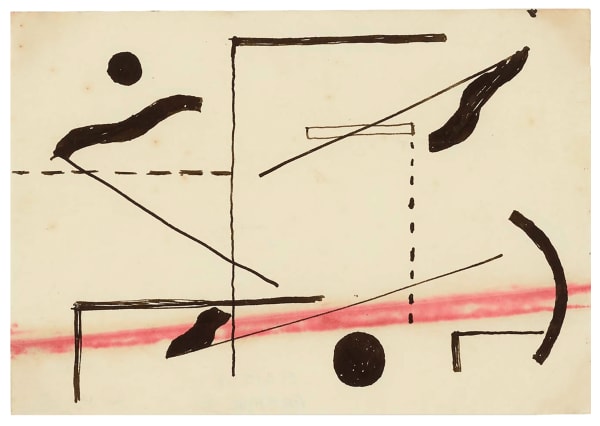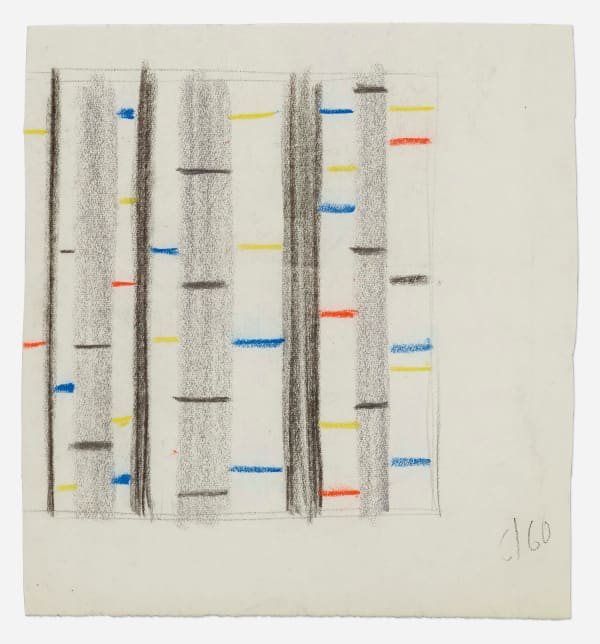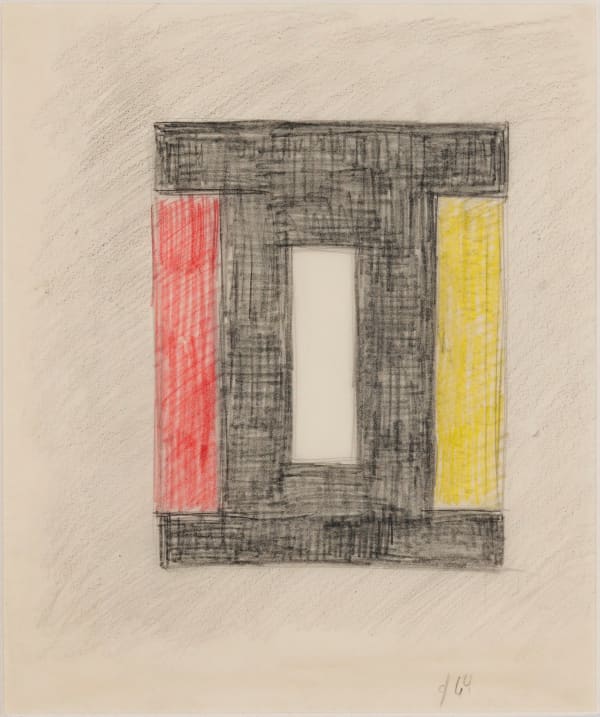Burgoyne Diller American, 1906-1965
19.4 x 16.8 cm.
Provenance
Spanierman Gallery, New York"How does one express the creative moment?... or the creative life?... you tidy up the studio... wash your brushes, clean the palette... make little drawings... find yourself getting interested... Space is realized... the image is clear." – Burgoyne Diller
Diller (b. 1906) began his career at the New York Art Students League and later became a supervising artist with the Works Progress Administration, where he worked with artists including Jackson Pollock and Stuart Davis. The small, gestural Color Sketch from 1932 was completed in one of Diller's final years as an art student prior to his involvement with the WPA. Diller's style became more geometric as he began to integrate European Neoplasticism and Constructivis (particularly the ideas of Piet Mondrian and Kazimir Malevich) into his work. He was among the first American artists to explore the possibilities of hard edge geometric abstraction and colour field, and his innovative typology of three aesthetic "themes" is displayed in this show.
Difficult circumstances in the 1950s (including a studio flood that destroyed his artwork storage) had a devastating effect on Diller. Today, institutions recognize his immense contributions to the development of American abstraction. Diller's works are held in the permanent collections of the Metropolitan Museum of Art, the Art Institute of Chicago, the Hirschhorn Museum, the National Gallery, and the Whitney Museum, among others.
- X
- Tumblr
-
 Burgoyne Diller, Second Theme (BD 63X), ca. 1948
Burgoyne Diller, Second Theme (BD 63X), ca. 1948 -
 Burgoyne Diller, Untitled (BD 368X), 1960
Burgoyne Diller, Untitled (BD 368X), 1960 -
 Burgoyne Diller, Third Theme, 1950
Burgoyne Diller, Third Theme, 1950 -
 Burgoyne Diller, Composition, 1960
Burgoyne Diller, Composition, 1960 -
 Burgoyne Diller, Untitled, 1962
Burgoyne Diller, Untitled, 1962 -
 Burgoyne Diller, Abstraction
Burgoyne Diller, Abstraction -
 Burgoyne Diller, Untitled (BD 293X), 1960
Burgoyne Diller, Untitled (BD 293X), 1960 -
 Burgoyne Diller, Abstract Composition, 1950
Burgoyne Diller, Abstract Composition, 1950 -
 Burgoyne Diller, Untitled (First Theme), 1964
Burgoyne Diller, Untitled (First Theme), 1964
Join our mailing list
* denotes required fields
We will process the personal data you have supplied in accordance with our privacy policy (available on request). You can unsubscribe or change your preferences at any time by clicking the link in our emails.
This website uses cookies
This site uses cookies to help make it more useful to you. Please contact us to find out more about our Cookie Policy.
Join our mailing list
Sign up to receive gallery updates and exclusive previews. We respect your privacy and always keep your information confidential.
* denotes required fields
We will process the personal data you have supplied in accordance with our privacy policy (available on request). You can unsubscribe or change your preferences at any time by clicking the link in our emails.




